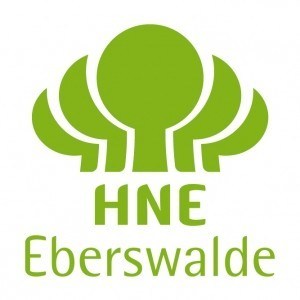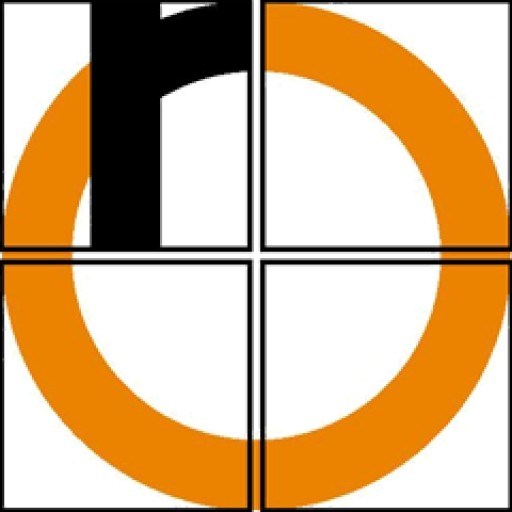Photos of university
The Master’s Programme in Tropical Forestry at Technische Universität Dresden is a comprehensive and interdisciplinary program designed to prepare students for sustainable management and conservation of tropical forest ecosystems. This advanced degree combines theoretical knowledge with practical skills, enabling graduates to address the complex environmental, social, and economic challenges faced by tropical regions worldwide. The curriculum emphasizes a multidisciplinary approach, integrating aspects of forestry, ecology, socio-economics, and policy analysis to foster a holistic understanding of tropical forest systems.
Students will explore topics such as biodiversity conservation, forest ecology, sustainable harvesting practices, forest biomass utilization, climate change impacts, and community involvement in forest management. The program also offers training in modern tools and techniques, including remote sensing, GIS, and forest monitoring technologies, equipping graduates with the technical expertise needed for effective forest assessment and management. Through a combination of lectures, practical fieldwork, case studies, and group projects, students gain valuable hands-on experience in tropical environments, often participating in field trips and internships in partner countries.
The programme is designed for students with a strong interest in environmental protection, sustainable development, and natural resource management who seek to work in international organizations, NGOs, research institutions, or government agencies focused on tropical forest regions. The Master’s in Tropical Forestry encourages critical thinking, intercultural competence, and problem-solving skills to address global challenges such as deforestation, illegal logging, forest degradation, and climate change mitigation.
Graduates will be well-equipped to develop and implement sustainable forest management strategies that balance ecological integrity with social and economic needs. The program also prepares students for doctoral studies or research careers in forestry, ecology, and related disciplines. With its international orientation and collaboration with global partners, the Master's Programme in Tropical Forestry at TU Dresden offers an outstanding opportunity to contribute to the preservation and sustainable use of tropical forests around the world, ultimately promoting environmental resilience and sustainable development in some of the most vulnerable regions on the planet.
Educational organisation
Well-balanced between knowledge transfer and its practical application, the MSc programme comprises two profiles: 1) Tropical Forestry and Management and 2) Sustainable Tropical Forestry (SUTROFOR). Both include lectures, seminars, practice, case studies, group work, and excursions adapted to the respective alignment. Additionally, the profile Sustainable Tropical Forestry contains e-learning modules, a summer school in a tropical country, and includes a two-semester study period at one of our European partner universities: the University of Copenhagen (Denmark), Bangor University (UK), AgroParis Tech in Montpellier (France), or the University of Padova (Italy). The last semester of both profiles is reserved for the Master's thesis, during which field work is conducted in a tropical or subtropical country. The Master's programme is organised entirely in English in order to facilitate access for international undergraduates.The SUTROFOR double degree: two national MSc degrees - an MSc degree from both the first-year and the second-year institution
Internships
NoneForms of assessment
Written and oral exams, reports on seminar topics, practicals and projectsCourse objectives
Multidisciplinary methods are used to convey expanded knowledge of forestry and management of tropical and subtropical forests. The main emphasis is on the interaction between humans and forests. Graduates of our programme are able to work independently and in teams, and to communicate their knowledge. They are capable of developing and implementing scientifically based strategies for the protection and sustainable management of forests in the tropics and subtropics.Language requirements
The Master's programme is conducted in English. Students must provide proof of their English proficiency:TOEFL (550 PBT, 213 CBT, 80 iBT), IELTS (band 6) or equivalent
Academic requirements
BSc or equivalent degree in forestry, agriculture, environmental sciences, or any other related field. Students interested in undertaking this Master's course without any undergraduate studies in forestry-related fields must explain their motivation towards tropical forestry.Each applicant has to submit a CV, letter of motivation, research proposal, school-leaving certificate, university degree certificate and academic transcripts, two letters of reference, and a proof of English proficiency, e.g. with an English language certificate.
Enrolment fees
The enrolment fee is currently about 260 EUR per semester and includes a semester ticket, which entitles students to use public transport in and around Dresden and regional trains within the federal state of Saxony. Additionally, it offers benefits (e.g. price reductions) for many cultural and leisure activities in Dresden.Costs of living
The cost of living varies according to personal needs and preferences. However, about 700 EUR per month represents an average budget for a student in Dresden, including expenses for accommodation, food, items of everyday life, and insurance.(This figure is relatively low compared to other big German cities.)
Arrival support
The university provides counselling via e-mail and personal appointments regarding all matters related to arrival and living in Dresden, guided campus tours, and welcome receptions to which new students are invited to meet other students and professors.For PhD students and researchers, the Welcome Center also provides additional support services concerning visa issues, finding suitable accommodation, etc.
Services and support for international students
TU Dresden International Office offers a tutor network that helps new international students organise their studies. All international freshers are invited to an introduction day at the beginning of their first semester, on which they will also meet their tutors.Furthermore, the International Office's cultural office and various student initiatives provide a plethora of social and cultural activities each semester (guided city tours, trips in the region and to other cities in Germany or neighbouring countries, language tandems, etc.).
Accommodation
It is quite easy to find accommodation in Dresden. Accommodation is available either via the Studentenwerk Dresden or on the private market. Rent for a single room in a student residence is approx. 250 EUR.Private housing can be found online. We recommend moving into a hall of residence at the beginning of your stay in Dresden and later find a place on the private market or in a shared apartment, known in German as a "Wohngemeinschaft".








